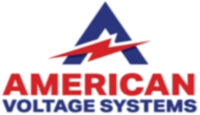Installing an electrical panel is a complex and potentially hazardous task that should always be handled by a licensed electrician. Here’s an overview of what’s involved and why professional assistance is essential.
Key Steps in Electrical Panel Installation
- Planning and Permits: Obtain necessary permits and plan the installation according to local codes and the specific needs of the building.
- Power Shutoff: Ensure the main power supply is turned off to avoid any electrical hazards.
- Mounting the Panel: Secure the new panel in place, ensuring it is properly grounded and positioned.
- Wiring the Panel: Connect the incoming power lines to the main breaker and route branch circuit wires to individual breakers.
- Testing: After installation, test the panel and circuits to ensure everything functions correctly and safely.
Why Hire a Licensed Electrician?
- Safety First: Handling high-voltage electricity is dangerous. Electricians are trained to manage these risks.
- Code Compliance: Electricians ensure that installations meet local codes and regulations, which is crucial for safety and legality.
- Expertise and Equipment: Professionals have the necessary tools and expertise to perform the installation correctly.
Installing an electrical panel is not a DIY project. The complexity and potential dangers involved require professional expertise. Hiring a licensed electrician ensures the installation is done safely, correctly, and in compliance with all local codes. For more detailed information and professional advice, visit the American Voltage Systems blog.
